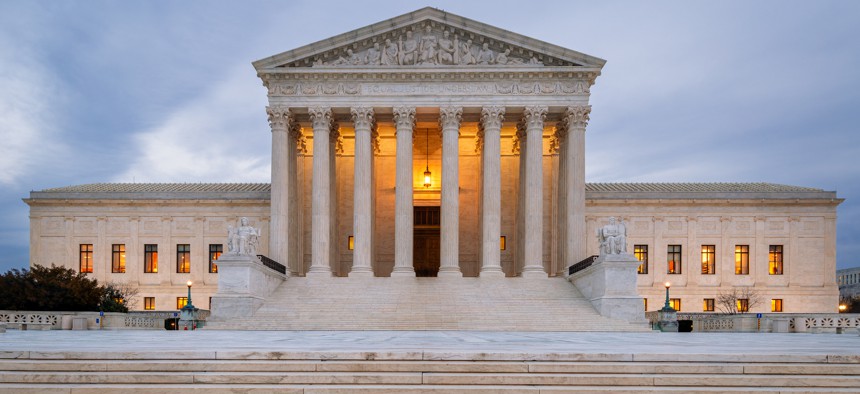Supreme Court lifts restrictions on federal agency contacts with social media firms

joe daniel price/getty images
The ruling frees up federal agencies to contact social network platform owners about content moderation issues and other matters, pending the resolution of a court case.
The U.S. Supreme Court on Friday lifted restrictions imposed by a federal appeals court on contacts between federal officials and social media platforms.
The original case was brought by Republican officials in Missouri and Louisiana, as well as several individual plaintiffs, and alleged that the Biden administration used its authority to coerce social media networks, most prominently Facebook and Twitter, into suppressing speech about election security, COVID-19 vaccine safety and other matters, in violation of the First Amendment.
According to an appellate ruling from September, the plaintiffs target is "the government’s interference with those social-media companies’ independent application of their policies." Lawyers representing the government said in arguments before the Fifth Circuit Court of Appeals that contacts with social media companies over content moderation issues are an ongoing government activity.
A district court judge in the case had imposed a broad injunction barring most contacts between federal officials and social media companies in early July.
The appeals court modified that injunction to permit contacts with social media companies by officials at the State Department, the Cybersecurity and Infrastructure Security Agency and the National Institute of Allergy and Infectious Diseases.
However, the appeals court upheld the injunction where White House, FBI and Centers for Disease Control officials were concerned.
With the Supreme Court ruling lifting the injunction, federal officials are free to refer potential misinformation or incidents of possible violations of social media platforms' content moderation policies to company officials until the underlying case is decided.
Justice Samuel Alito dissented from the decision staying the injunction. He was joined by Justices Clarence Thomas and Neil Gorsuch.
"Government censorship of private speech is antithetical to our democratic form of government, and therefore today’s decision is highly disturbing," Alito wrote in his dissent.
Separately, the Supreme Court agreed in late September to review a series of state laws passed in Texas and Florida that put limits on the ability of social media platforms to moderate content posted to their networks. The Biden administration had urged the Court to take on the case.
"When a social-media platform selects, edits, and arranges third-party speech for presentation to the public, it engages in activity protected by the First Amendment," the Justice Department stated in a brief.






